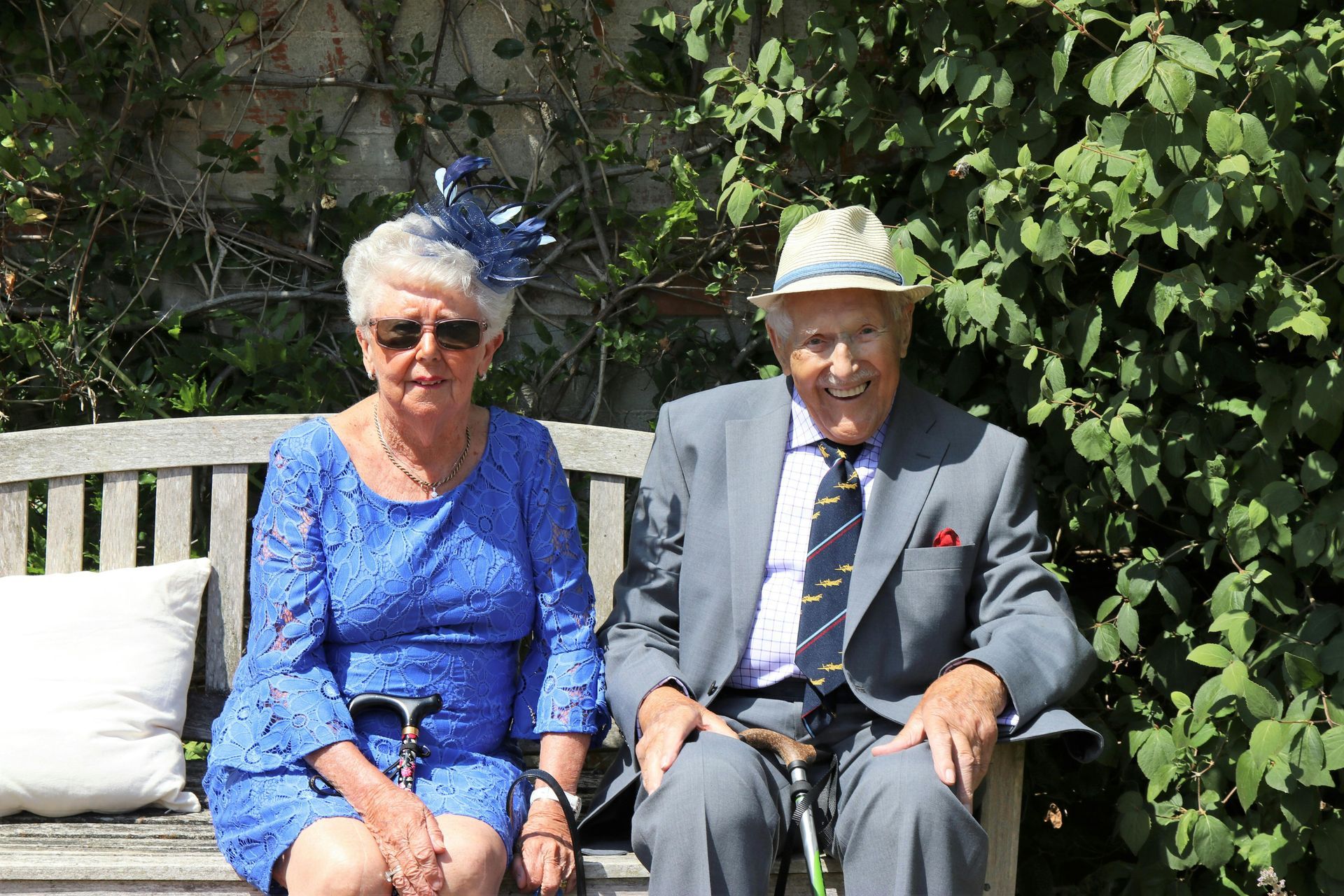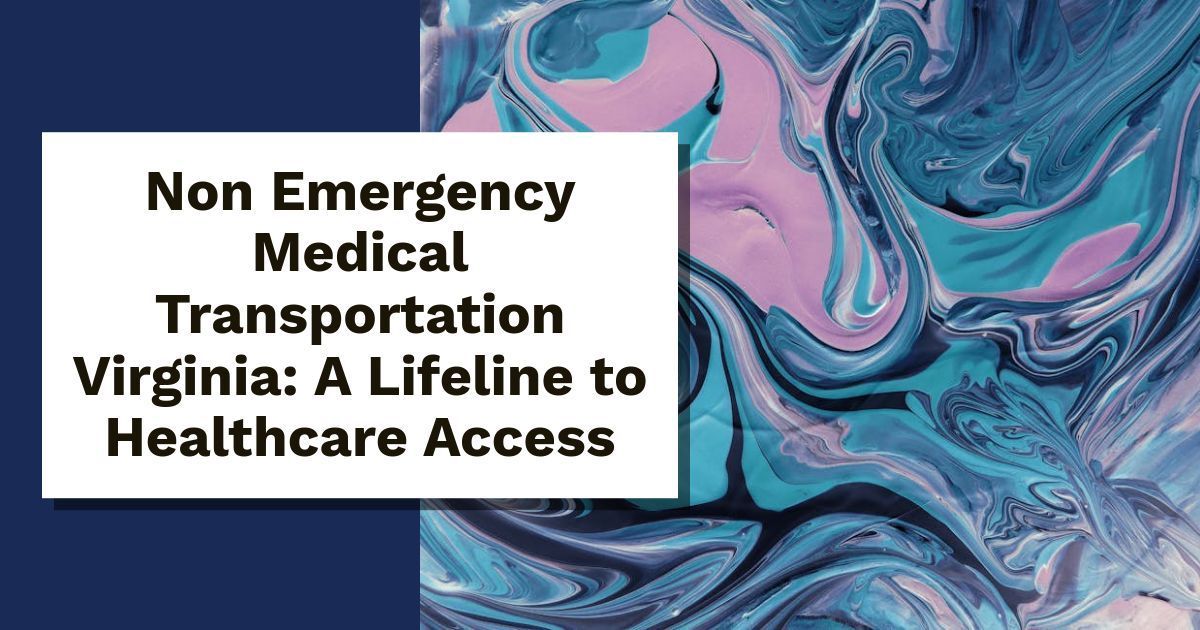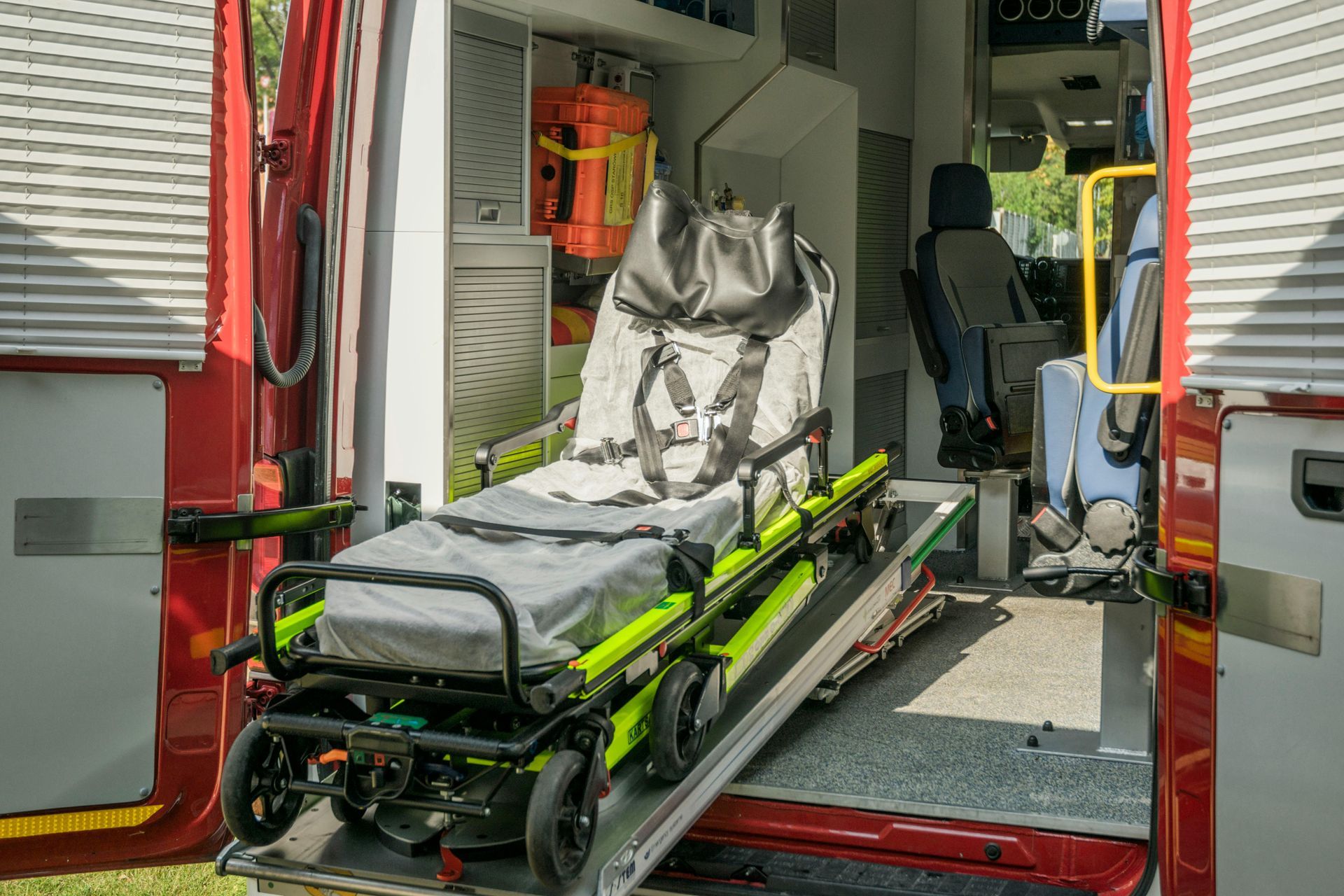Medical Transportation for Elderly in Virginia: Meeting the Unique Needs of the Vulnerable
As people age, getting to medical appointments can become more challenging due to mobility limitations, chronic conditions, or the need for specialized care. Medical transportation for the elderly provides a reliable solution, ensuring seniors can safely reach doctor visits, therapy sessions, dialysis treatments, or hospital stays without stress in Virginia. These services are designed with their unique needs in mind, offering wheelchair-accessible vehicles, trained staff, and door-to-door assistance for a smooth and comfortable journey.
For elderly individuals, having access to professional medical transport services in Northern Virginia can greatly improve their quality of life and independence. Whether traveling across town or to another state for treatment, these services prioritize safety, comfort, and dignity. Families can have peace of mind knowing their loved ones are receiving the care and support they need during transit, making medical travel simpler, safer, and more compassionate.

Medical Transportation for the Elderly:
Ensuring Safe and Comfortable Travel
As the population continues to age, the demand for specialized medical transportation services in Virginia for the elderly is on the rise. Serving the transportation needs of this vulnerable group requires a deep understanding of their unique requirements and challenges. In this article, we will delve into the crucial aspects of medical transportation for the elderly and highlight the best practices to ensure their safety, comfort, and overall well-being.
Understanding the Unique Challenges
Transporting elderly individuals in Virginia comes with its own set of challenges. Factors such as limited mobility, chronic health conditions, cognitive impairments, and the need for specialized care must be taken into consideration. By understanding these challenges, service providers can develop strategies to address them effectively.
Limited Mobility
Many elderly individuals in Virginia face mobility issues, making it difficult for them to move independently. Whether it's due to age-related frailty or a specific health condition, transportation services in Virginia must be equipped to provide appropriate assistance, ensuring safe boarding and disembarking. This may involve the use of wheelchair-accessible vehicles, trained personnel to assist with mobility aids, and proper securing mechanisms for wheelchairs.
Expanding on limited mobility:
- Older adults may have difficulty walking long distances or climbing stairs, necessitating the use of ramps or lifts in transportation vehicles.
- Ensuring vehicles are equipped with safety features such as grab bars and non-slip flooring to prevent falls during boarding and disembarking.
- Training staff members on proper techniques for assisting individuals with limited mobility, including transferring them from their homes to the vehicle and vice versa.
- Providing specialized equipment such as walkers or canes for individuals who require additional support.
Chronic Health Conditions
Elderly individuals often deal with chronic health conditions such as diabetes, heart disease, arthritis, or respiratory ailments. Medical transportation services should have staff who are trained to handle emergencies and provide necessary medical assistance during transit. This may include administering medication, monitoring vital signs, or offering basic first aid when required.
Expanding on chronic health conditions:
- Staff members should receive training on common chronic health conditions prevalent among the elderly population, including their symptoms, potential complications, and appropriate responses in case of emergencies.
- Equipping vehicles with necessary medical equipment such as oxygen tanks or defibrillators to address immediate medical needs.
- Collaborating with healthcare providers to obtain detailed medical histories and ensure that appropriate care is provided during transportation.
- Educating staff members on proper medication administration techniques and the importance of adhering to prescribed medication schedules.
Cognitive Impairments
Conditions like dementia or Alzheimer's disease are prevalent among the elderly population. These cognitive impairments can make it challenging for individuals to communicate their needs or remember important information. Medical transportation providers need to ensure that their staff is trained to handle these situations appropriately, using clear and concise communication techniques. Familiarity with dementia-friendly practices can significantly improve the overall experience for the elderly passengers.
Expanding on cognitive impairments:
- Training staff members on effective communication strategies for individuals with cognitive impairments, such as using simple language, visual cues, and repetition.
- Implementing person-centered care approaches that prioritize individual preferences and provide a sense of familiarity and comfort.
- Creating a calm and soothing environment within transportation vehicles to reduce anxiety and agitation among passengers with cognitive impairments.
- Offering additional support and reassurance during the transportation process, addressing any confusion or disorientation that may arise.
Best Practices in Medical Transportation for the Elderly
To provide the best possible service to the elderly population, medical transportation providers should adopt the following best practices:
1. Specialized Training for Staff
Ensuring that the staff members receive specialized training in elderly care is crucial. This training should cover topics such as safe handling and transfer techniques, communication skills, basic medical knowledge, sensitivity towards cognitive impairments, and empathy training. By equipping the staff with the necessary skills, service providers can enhance the overall quality of care and ensure the well-being of elderly passengers.
Expanding on specialized training for staff:
- Providing comprehensive training on proper techniques for assisting individuals with limited mobility, including the use of mobility aids, transferring techniques, and fall prevention strategies.
- Offering education on the specific needs and challenges associated with various chronic health conditions, enabling staff members to provide appropriate medical assistance and respond effectively to emergencies.
- Conducting workshops or seminars on effective communication strategies for interacting with individuals with cognitive impairments, emphasizing empathy and patience.
- Regularly updating staff members on the latest advancements in elderly care and transportation practices through continuing education programs.
2. Adequate Vehicle Adaptations
Transportation vehicles need to be properly adapted to accommodate the needs of elderly passengers. This includes equipping vehicles with wheelchair ramps, lifts, or other accessibility devices. Vehicles should also be designed to provide a smooth and comfortable ride, minimizing any potential discomfort or injuries during transit. Regular maintenance and safety checks are essential to ensure that all adaptations are functioning correctly.
Expanding on adequate vehicle adaptations:
- Ensuring that vehicles are equipped with wheelchair-accessible features such as ramps, lifts, or lowered floors to facilitate easy boarding and disembarking.
- Installing comfortable seating options with sufficient legroom and back support to minimize discomfort during transportation.
- Incorporating features to reduce noise and vibrations within the vehicle, creating a more peaceful and relaxing environment for passengers.
- Conducting regular inspections and maintenance checks to ensure that all adaptations, including safety features, are in proper working condition.
3. Personalized Assistance
Each elderly individual has unique needs, and it's essential to provide personalized assistance accordingly. This may involve assigning a dedicated staff member to each passenger, understanding their specific requirements, and tailoring the care provided. This personalized approach helps create a positive and comfortable experience for passengers, fostering a sense of trust and security.
Expanding on personalized assistance:
- Conducting thorough assessments prior to transportation to identify individual needs, preferences, and any specific challenges that may arise during the journey.
- Assigning a dedicated staff member or caregiver to each passenger to provide continuous support and address any concerns or requests throughout the transportation process.
- Offering additional assistance with tasks such as carrying luggage, navigating through crowded areas, or accompanying individuals to medical appointments.
- Regularly communicating with passengers and their families to ensure that their needs are being met and to make any necessary adjustments to the transportation plan.
4. Appointment Scheduling and Timeliness
Elderly individuals often rely on medical transportation services to attend crucial appointments. Therefore, it is imperative to maintain a well-organized scheduling system. This involves efficient coordination with healthcare providers, ensuring prompt pick-ups and drop-offs, and allowing for sufficient time to accommodate any unexpected delays. Timeliness is crucial to reduce stress and anxiety among elderly passengers and ensure that they receive timely medical care.
Expanding on appointment scheduling and timeliness:
- Establishing effective communication channels with healthcare providers to receive accurate appointment details and any updates or changes in schedules.
- Implementing a robust scheduling system that allows for efficient routing and coordination of transportation services, minimizing wait times for passengers.
- Allowing for buffer time between appointments to account for unforeseen circumstances or delays, ensuring that passengers are not rushed or anxious.
- Regularly monitoring and evaluating the timeliness of transportation services through feedback from passengers and healthcare providers, making necessary adjustments to improve efficiency.
5. Clear and Transparent Communication
Effective communication with elderly passengers and their caregivers is essential. This includes providing clear instructions about the transportation process, discussing any changes in schedules or routes, and addressing any concerns or questions they may have. Transparent communication builds trust and helps alleviate any anxieties that elderly individuals may experience during this process.
Expanding on clear and transparent communication:
- Providing detailed information to passengers and their caregivers regarding the transportation procedure, including pick-up times, expected duration of the journey, and any necessary preparations or precautions.
- Ensuring that staff members are readily available to answer any questions or concerns before, during, and after transportation, providing reassurance and clarifications as needed.
- Implementing user-friendly communication channels such as phone hotlines or online portals to facilitate easy access to information and enable efficient communication.
- Regularly seeking feedback from passengers and their caregivers to identify areas for improvement and address any communication gaps or misunderstandings.
6. Collaboration with Healthcare Providers
Collaboration between medical transportation providers and healthcare professionals is vital for the overall well-being of elderly passengers. Sharing relevant medical information, discussing specific requirements, and receiving feedback from healthcare providers helps create a comprehensive care plan for each individual. Regular communication and collaboration ensure that the transportation services align with the medical needs of the elderly passengers.
Expanding on collaboration with healthcare providers:
- Establishing strong partnerships with healthcare facilities, including hospitals, clinics, and nursing homes, to facilitate seamless coordination of transportation services.
- Obtaining necessary medical information and instructions from healthcare providers, such as medication schedules, dietary restrictions, or specific monitoring requirements.
- Sharing relevant feedback and updates with healthcare providers to ensure a holistic approach to elderly care and transportation, enabling adjustments to be made based on individual needs.
- Participating in regular meetings or conferences with healthcare professionals to stay updated on the latest advancements in medical practices and address any emerging challenges or concerns.
In conclusion, medical transportation for the elderly requires a specialized approach that acknowledges and addresses their unique needs and challenges. By understanding the limitations imposed by limited mobility, chronic health conditions, and cognitive impairments, service providers can develop strategies to offer safe, comfortable, and personalized transportation experiences. Implementing best practices such as specialized training for staff, vehicle adaptations, personalized assistance, efficient scheduling, clear communication, and collaboration with healthcare providers, medical transportation services can make a significant difference in the lives of the elderly, providing them with the reliable and compassionate care they deserve.
FAQ
What are the unique challenges in medical transportation for the elderly in Virginia?
- Factors such as limited mobility, chronic health conditions, cognitive impairments, and the need for specialized care must be taken into consideration.
How can medical transportation services address limited mobility in elderly individuals?
- They can use wheelchair-accessible vehicles, trained personnel to assist with mobility aids, and proper securing mechanisms for wheelchairs. They can also ensure vehicles are equipped with safety features such as grab bars and non-slip flooring.
How can medical transportation services handle chronic health conditions in elderly individuals?
- They should have staff trained to handle emergencies and provide necessary medical assistance during transit. This may include administering medication, monitoring vital signs, or offering basic first aid when required.
How can medical transportation services address cognitive impairments in elderly individuals?
- They can train their staff on effective communication strategies for individuals with cognitive impairments, implement person-centered care approaches, create a calm and soothing environment within transportation vehicles, and offer additional support and reassurance during the transportation process.






